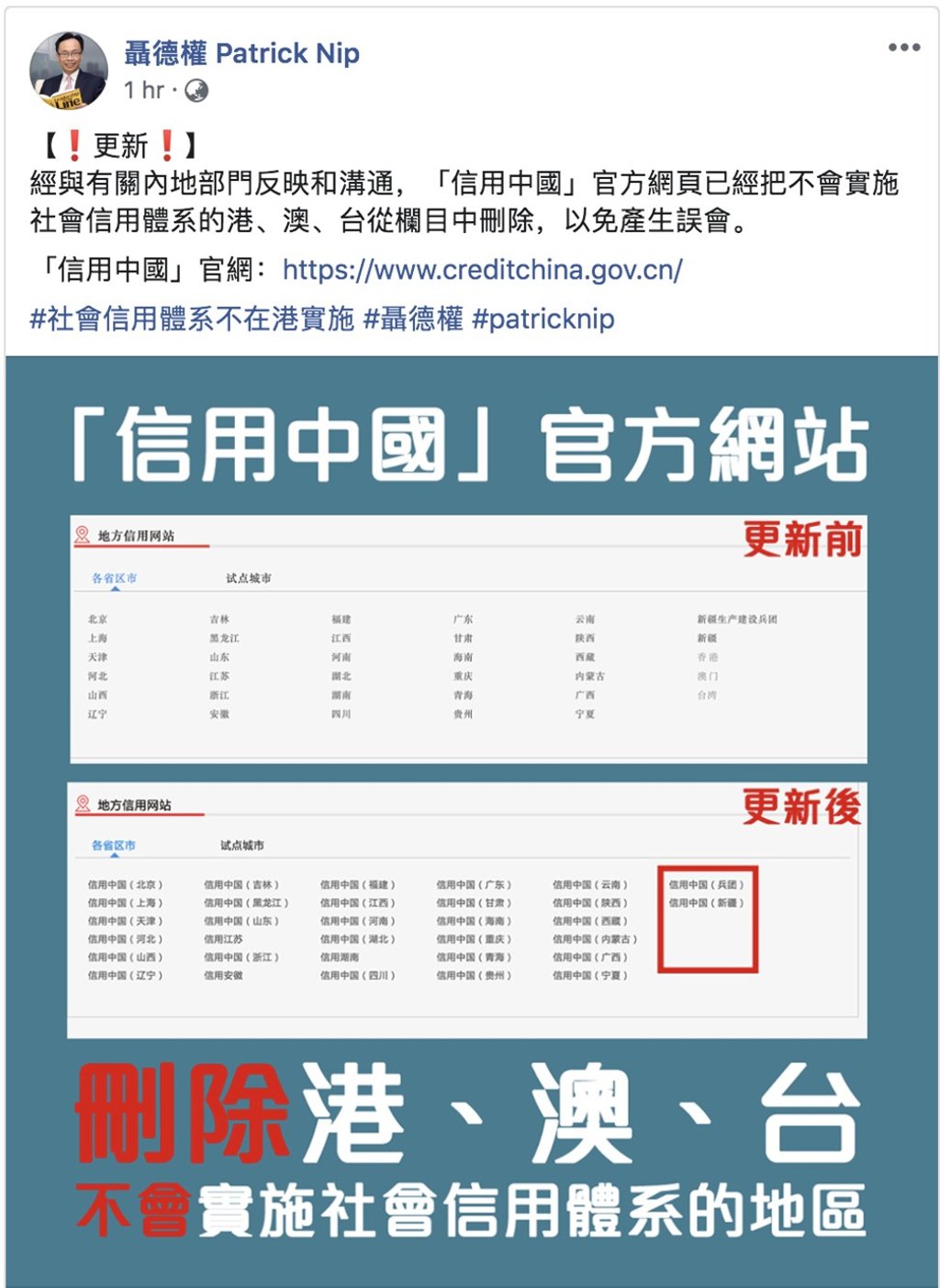Advertisement
Hong Kong, Macau and Taiwan deleted from website for mainland China’s controversial ‘social credit system’ as rumours swirl of implementation
- Constitutional affairs chief Patrick Nip reveals move in late night Facebook post
- Hong Kong government source says deletion done to avoid any misunderstanding that scheme will be implemented locally
Reading Time:2 minutes
Why you can trust SCMP

Hong Kong, Macau and Taiwan have been removed from a Chinese government “social credit system” website to avoid any misunderstanding that the controversial scheme, which some observers believe will increase the collection and sharing of data about citizens, will be implemented locally.
In a message posted on his Facebook page late on Saturday night, Secretary for Constitutional and Mainland Affairs Patrick Nip Tak-kuen said the items on Hong Kong, Macau and Taiwan had been deleted from the “Credit China” website operated by the National Public Credibility Information Centre, after communications between the site administrator and the city’s government.
On Tuesday, some Taiwanese newspapers and online platforms in Hong Kong claimed the social credit system would be implemented in the city.
Advertisement
Nip rejected the claim the same day.

Advertisement
Rumours about imminent implementation may have arisen because the system was included in a three-year action plan, from 2018 to 2020, for developing the Greater Bay Area, the central government’s plan to turn Hong Kong, Macau and nine Guangdong cities into an integrated economic and business hub.
Advertisement
Select Voice
Choose your listening speed
Get through articles 2x faster
1.25x
250 WPM
Slow
Average
Fast
1.25x